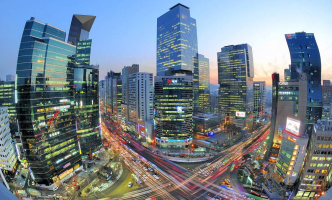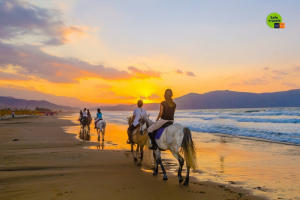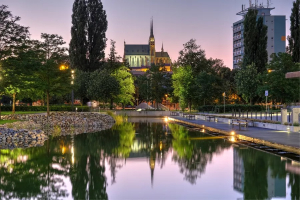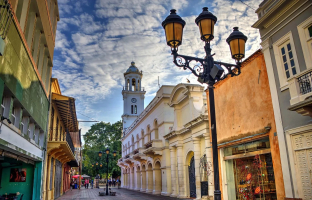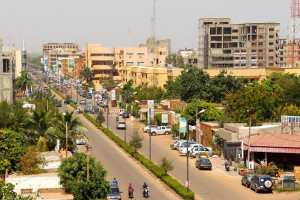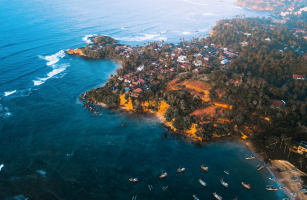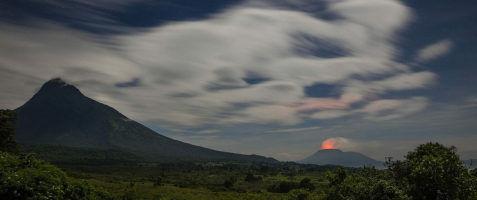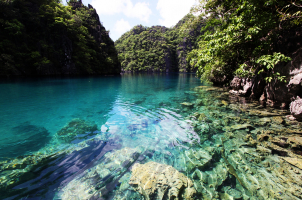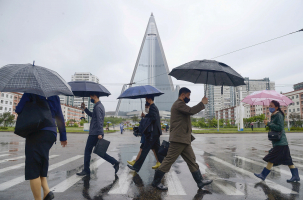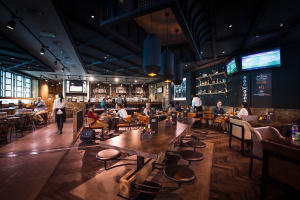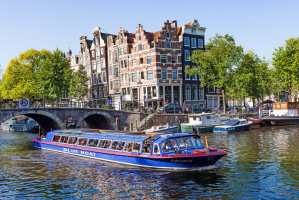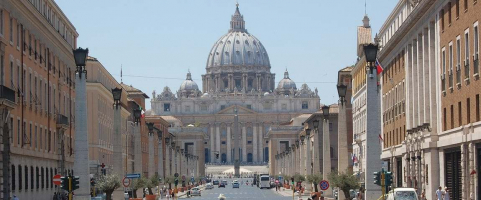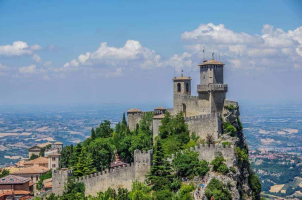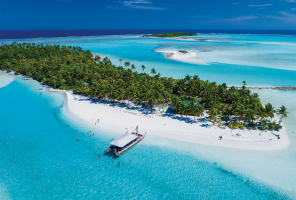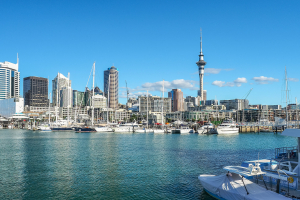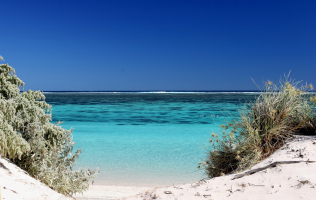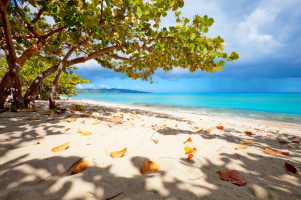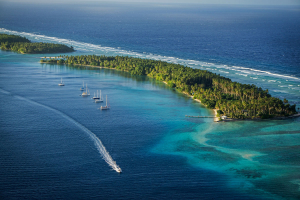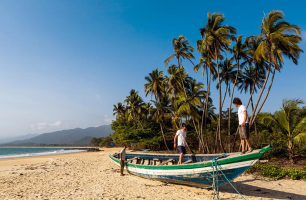Top 11 Things About South Sudan You Should Know
Despite the fact that South Sudan is a freshly independent country, it is endowed with a diverse range of tourist attractions, including a diverse fauna and ... read more...vegetation cover. The country is home to the magnificent Nile River, which flows softly through it and offers a variety of water activities, as well as a massive wetland teeming with birds and many other attractions. The following is a list of some important things about South Sudan if you are on a plan to visit this country.
-
When preparing for a trip to South Sudan, you may want to know the weather or climate to decide what the best time to visit this country is. This is one of the most important things about South Sudan you should know. Don't worry, Toplist has the answer for you. If you want to go across South Sudan, you should go during the dry season, which begins in late November and ends in late April. Because of its distance from the equator, the wet season is slightly shorter in the north. Outside of this time, roads (where they exist) are usually impassable, planes are frequently grounded due to poor visibility, and many communities are flooded to the depths of a foot or more due to a lack of drainage.
If you want to view the wildlife migrations in South Sudan, go between March and April, when the animals are migrating from the Sudd south to the Boma National Park, or between November and early January, when the animals are migrating in the opposite direction. In December and January, the white-eared kob calves, and witnessing the calves could be a highlight of your vacation.
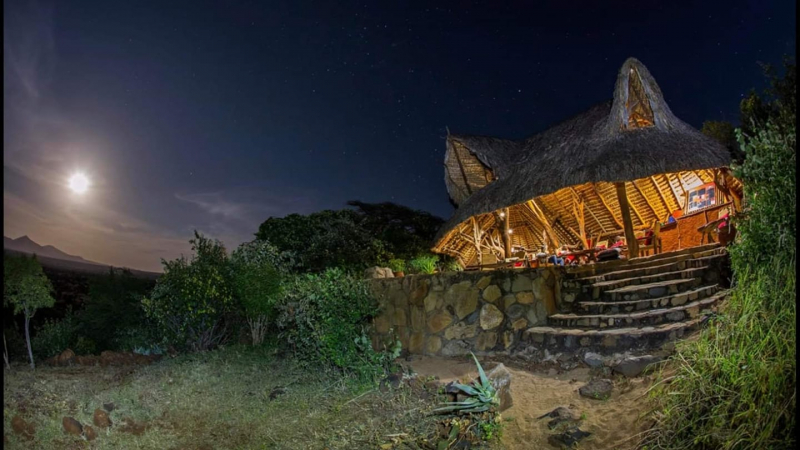
Terrain Hotel on Yei Road toward checkpoint, Juba (https://www.facebook.com/visit.s.sudan/) 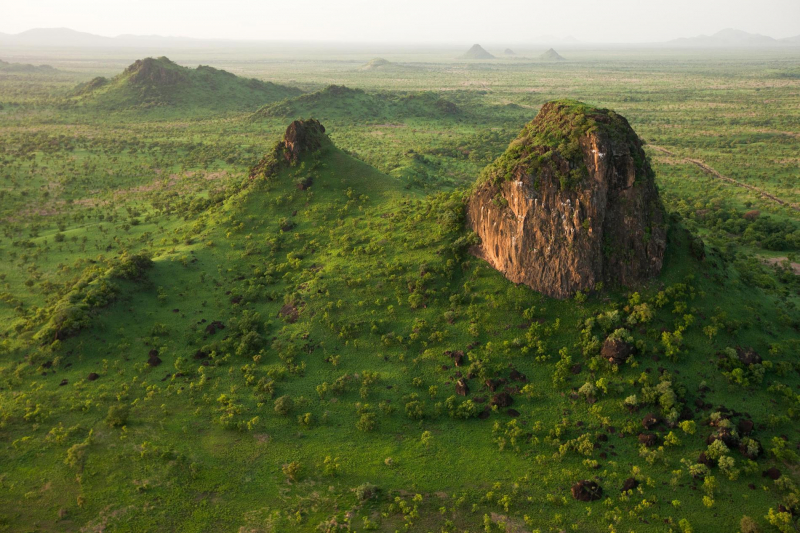
https://www.globalclimatepledge.com/ -
The Mundari tribes and their Cattle Camps are open to visitors all year. The Mundari tribe, like the Dinka, is one of South Sudan's most populous and traditional tribes. The Mundari are both cow ranchers and ferocious warriors. They live in symbiosis with their cattle, and nothing is more precious to them than their cows. They sleep with their animals all night, and nothing, including money, can be exchanged for their livestock.
Visiting the Mundari tribes and their cattle camps in South Sudan will provide you with an insight into the Mundari tribe's daily lives, especially the children who do the majority of their daily work. They will gather fresh cow dung and pile it into mounds, which will then be set on fire. Those fires are important because they repel the South Sudanese countryside's (very) numerous and ravenous flies and mosquitoes. The Mundari also rub the ash produced by these fires on themselves and their cattle to provide mosquito protection.
Camping in a tent within the Mundari cattle camps is the greatest way to explore and experience the Mundari tribes and their Cattle Camps. This allows you to observe and experience both the day and night lives of the Mundari tribe as they honor their cattle.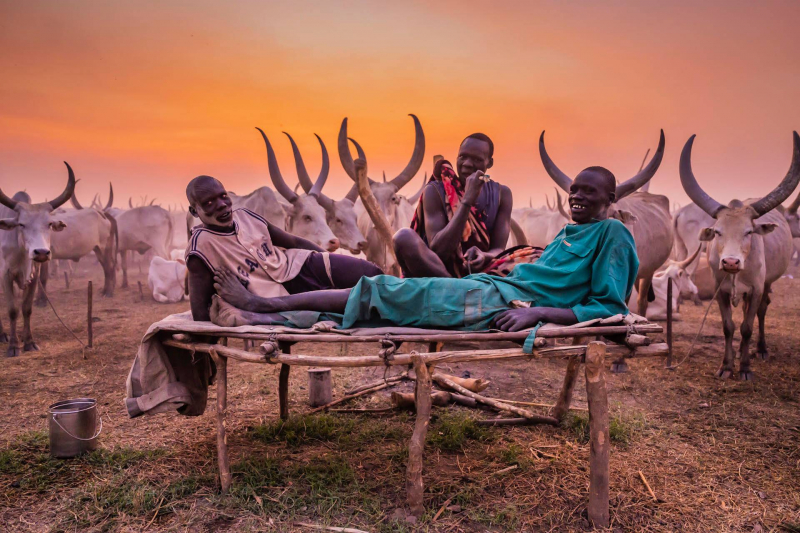
https://africageographic.com/ 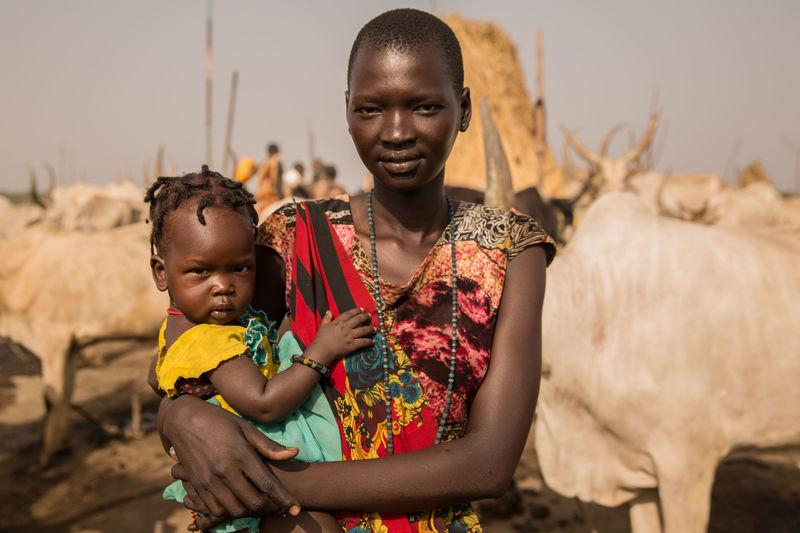
https://www.reuters.com/ -
Currency is one of the most important things about South Sudan you should know before visiting this country. The official currency of the Republic of South Sudan is the South Sudanese pound. On working days, the Bank of South Sudan posts its foreign exchange rates (Monday - Friday). Due to fluctuating market circumstances and transaction volume, these rates may differ.
South Sudan's currency is the South Sudanese Pound, denoted by £ and abbreviated as SSP. There are 100 piastres in the South Sudanese Pound. The most common South Sudanese pound conversions are as follows:- SSP/Kenyan shilling
- SSP/Ugandan shilling, and
- SSP/American dollar.
Some hotels and supermarkets accept credit and debit cards. For overseas card use, ATMs are uncommon and not always dependable. Large-denomination US Dollars (clean, undamaged notes dated 2009 and later) should be brought and exchanged in supermarkets or motels. Juba is relatively costly; a single night's stay in an international quality hotel can cost up to $200.
1 USD ~ 130.26 South Sudanese pounds SSP
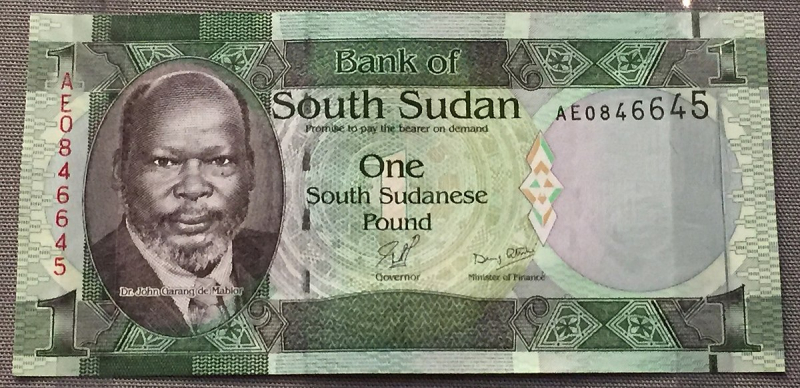
https://commons.wikimedia.org/ 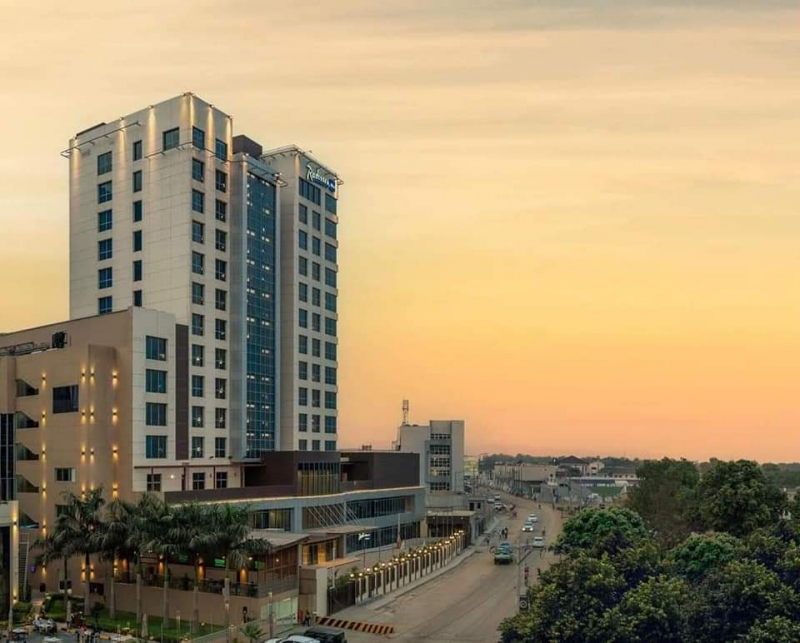
Juba (https://www.facebook.com/visit.s.sudan/) -
You should pick a trustworthy service for private transportation. Public transportation (small buses, vans, or "boda-boda" motorcycle taxis) is prohibited for US Embassy workers and should be avoided wherever feasible. The drivers of these vehicles are typically inexperienced and dangerous, and the vehicles are routinely neglected. Schedules are not made public and are subject to change at any time. Rural communities have access to public transportation via sporadically scheduled minibusses.
Avoid attempting to dodge all vehicle checkpoints, especially after dark or during periods of heightened political or military tensions. Even stops at checkpoints run by the South Sudanese government might turn unfriendly or violent.
To avoid carjacking and vehicle incursion, keep your car doors secured at all times. Only roll down the car windows enough to converse when absolutely essential. Bribes are frequently sought by those who work at checkpoints. Display the needed documents but do not hand them over; if bribes are not paid, officials may seize them. You might want to carry a laminated copy of your documents with you so that you can show it instead of your passports or identification cards.
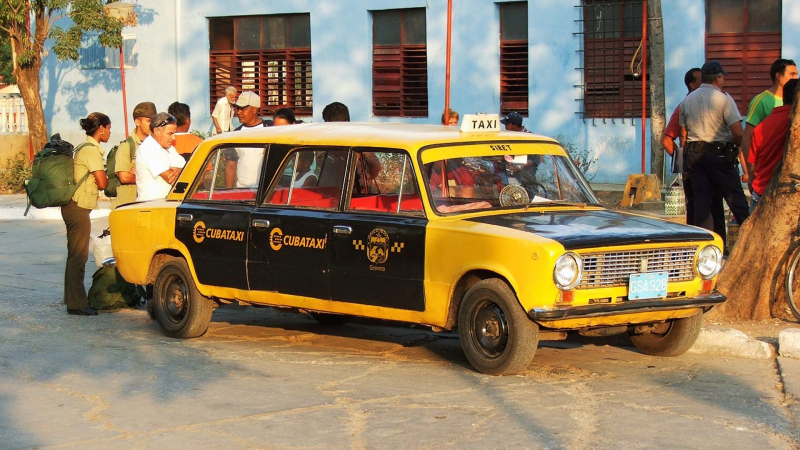
https://www.autotrader.ca/ -
Of course, the cuisine is one of the most attractive things about South Sudan you should know. Food in South Sudan is typically simple, centered on pounded millet, which provides the majority of the country's daily energy needs. Cassava fritters and bread are also available in urban areas. Perhaps the most important component is the peanut, which serves as a basis and thickener in many cuisines. Meat, notably goat, beef, and chicken, is taken on a regular basis, albeit in little amounts as part of a sauce that coats and flavors the pounded millet. In addition, Ethiopian cuisine is widely available.
Recommendation:
Kisra: Flatbread made from sorghum flour.
Wala-wala: Thick, starchy and plain tasting balls of millet flour that typically make up a meal’s carbohydrate quota.
Combo: Stewed spinach, peanut butter and tomato sometimes served with meat.
Tamia: Balls of deep-fried ground chickpeas, in other words, falafel.
Goat stew: Mildly-flavoured concoction of chunks of goat meat, onion and a touch of chilli.
Salaat zabadi: Vegetables including carrot, cucumber and tomato in locally-produced yoghurt.
Perch: Smoked or deep-fried pieces of fish served with a chilli relish.
Baseema: Cake made with yoghurt, sesame oil and sugar.
Miris: Stew containing sheep’s fat, onion and dried okra.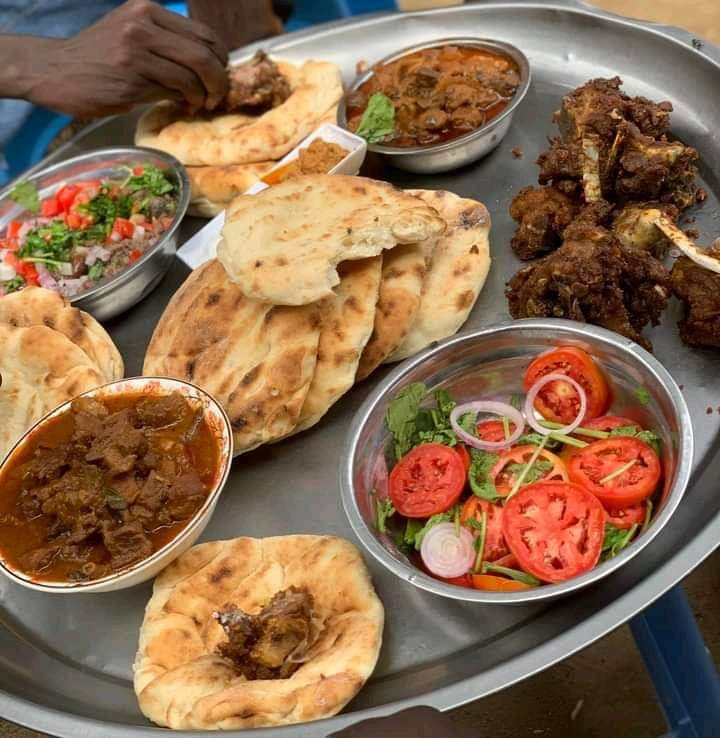
https://www.facebook.com/visit.s.sudan/ 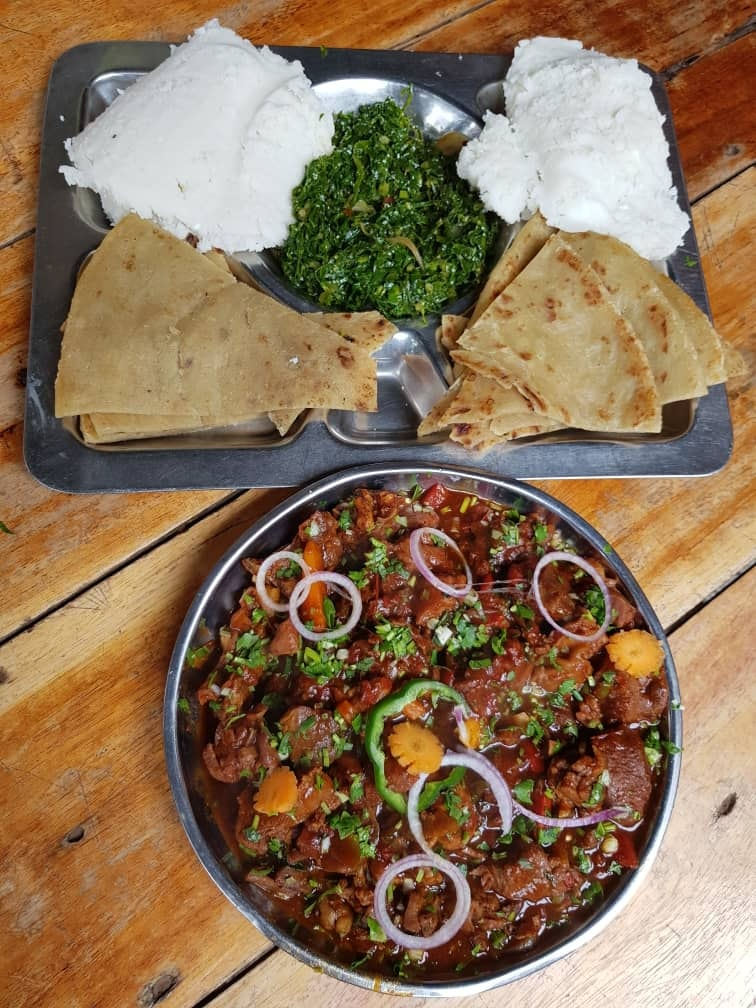
https://www.facebook.com/visit.s.sudan/ -
Sudan's holidays and festivals are based on the Islamic calendar, as it is an Islamic country. Important days, such as the Prophet Mohammed's birthday, Mawlid an-Nabi, and Eid al-Fitr, which commemorates the end of a month of fasting, are celebrated widely throughout the country. However, there are a few non-Islamic gatherings that celebrate common cultures and life's pleasures.
Mawlid an-Nabi, which commemorates the birth of the Prophet Mohammed, kicks off the Sudanese holiday season in February. This is one of the few Islamic festivals where visitors are welcome, as the festivities are moved from the home to the streets. The streets are lined with food and sweets stalls, and locals dance and sing until late at night. The mood is electrifying, and everyone is having a great time.
The popular Spring Holiday (Sham Al Nassim) is held every year in April, on the first Monday following the Christian Easter holiday. The cause for the event has yet to be discovered, but that does not stop locals and visitors from having a good time. The day is marked by musical performances, dance performances, and general revelry.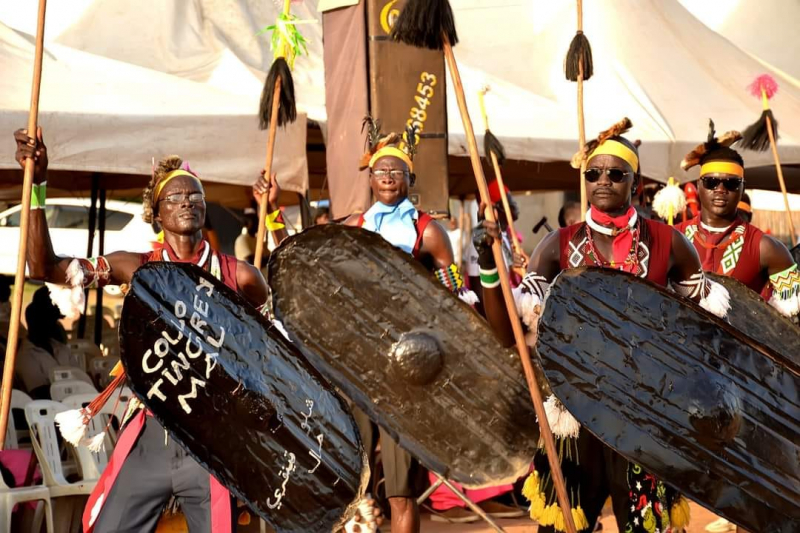
https://www.facebook.com/visit.s.sudan/ 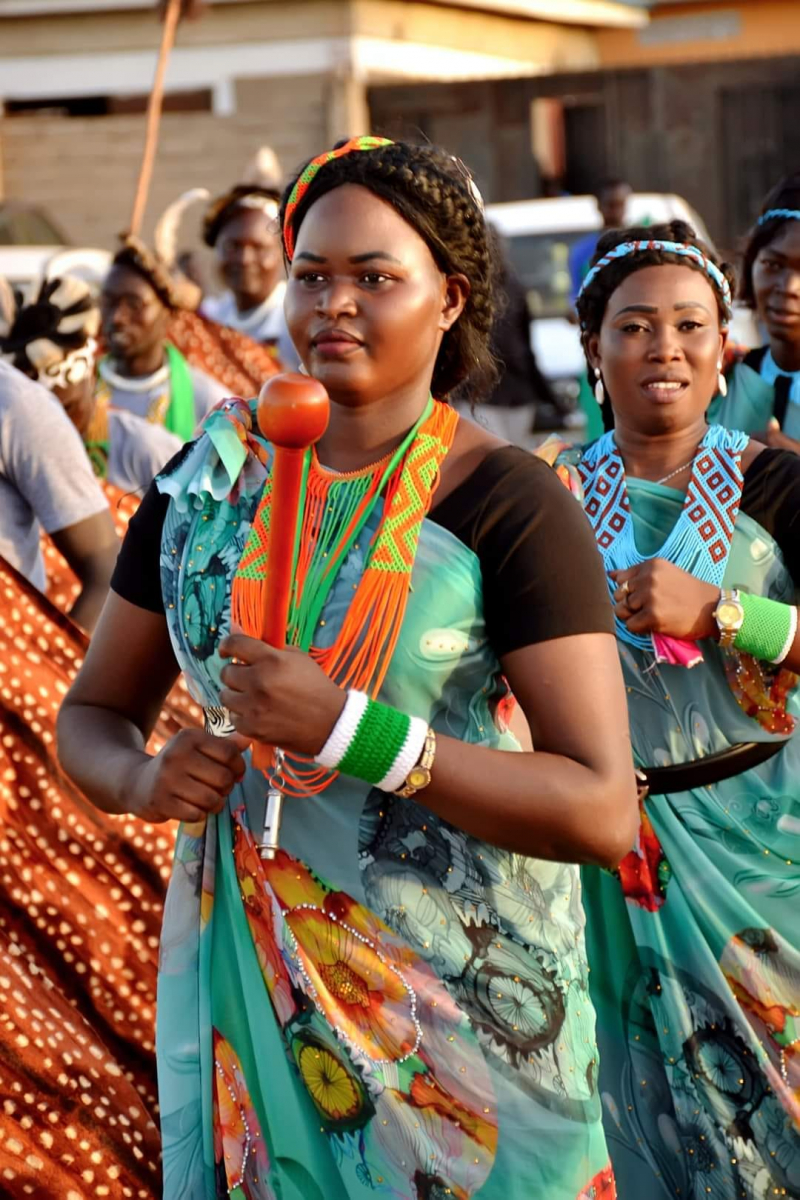
https://www.facebook.com/visit.s.sudan/ -
You should always respect local customs, laws, and faiths, and be careful of your behavior to ensure that they do not offend other cultures or religious views, especially if you plan to visit religious sites.
Avoid taking pictures near government buildings, military installations, public utilities (such as gas stations), and other sensitive places (bridges, airports). In Juba and throughout South Sudan, there are a large number of plainclothes public security officers.
Even when the individual has no direct connection to the ongoing disagreement, British people have been arrested in the past. Others have been solicited with commercial fraud schemes. Foreign nationals, including NGO staff and journalists, have been harassed, detained, and expelled by South Sudan security forces as they enter and exit Juba airport, often due to visa and work permit concerns. At all instances, you should be cautious.
Social conservatism is prevalent in today's society. Homosexuality and extramarital affairs are frowned upon in the culture.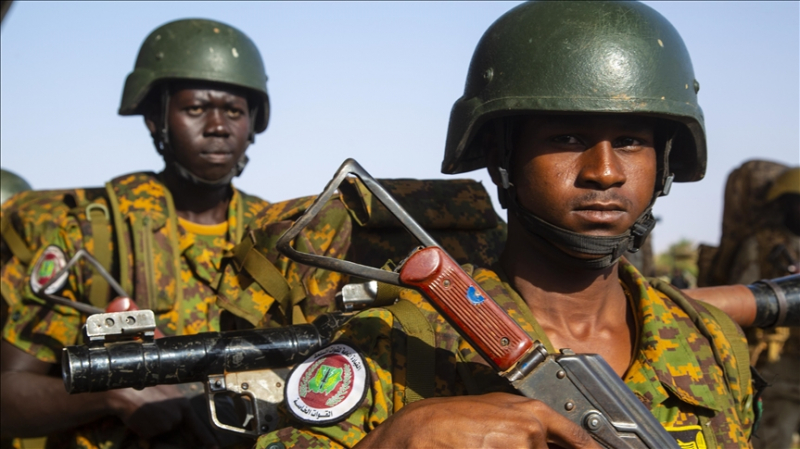
https://www.aa.com.tr/ 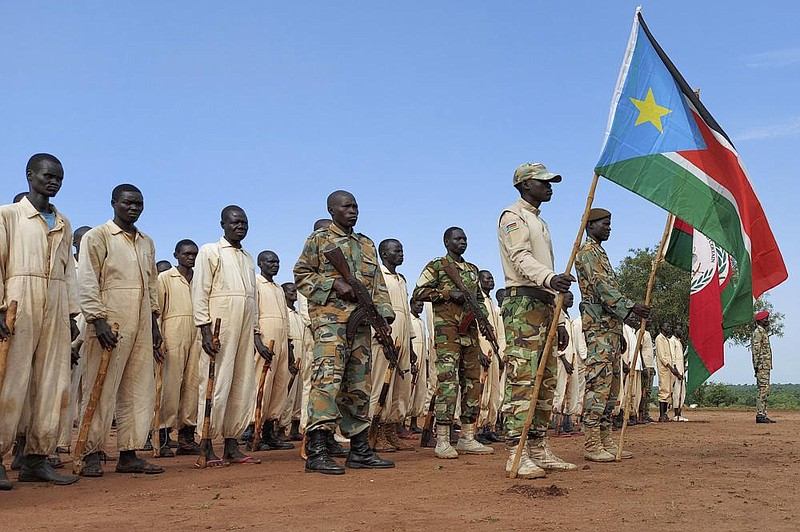
https://www.arkansasonline.com/ -
The eVisa for South Sudan is an electronic visa that allows foreign nationals to apply for permission to visit the African country entirely online. South Sudan introduced this digital eVisa to replace the traditional procedure of applying in person at an embassy because of the COVID-19 outbreak.
South Sudan requires all visitors to get a visa in order to enter the country (some nationalities are exempt). E-visas are available to most citizens who wish to go to South Sudan. There are a few nations that are exempt from this restriction; to see if you are eligible or exempt, use the Visa Tracker tool at the top right of this page.
The passport of every visitor to South Sudan must be valid for at least 180 days from the date of entry. You may complete the online form in 10-15 minutes, and you will receive an email confirmation once you have paid and submitted your application. Simply wait for your visa to arrive through email within the time limit you specify. It takes 72 hours for tourists to receive their e-visa PDF. Make sure you save and/or print this document so it is ready to show when you arrive in Sudan. Officials will check your electronic visa in either case and print a copy for you to stamp in your passport.
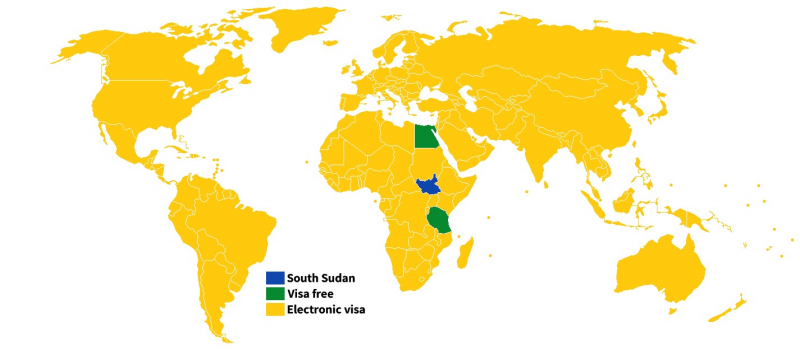
https://vi.wikipedia.org/ 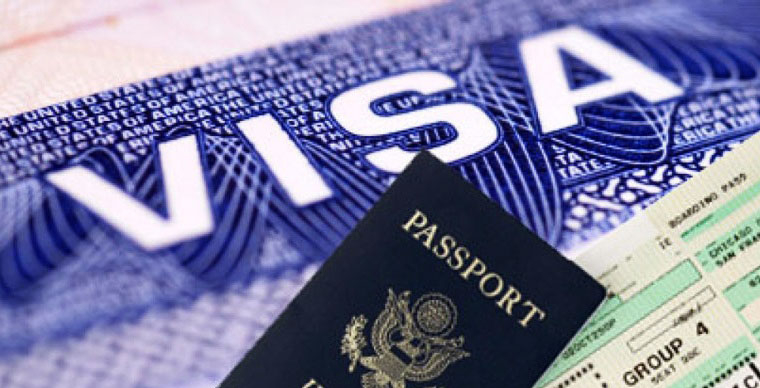
https://www.eyeradio.org/ -
South Sudan is an East Central African country with a diverse flora and fauna. South Sudan's forests, grasslands, and marshes are home to some of Africa's most iconic species. The flora and animals of the country are protected inside the borders of the six national parks listed below. You can witness its diverse ecosystem by visiting the National Parks such as Boma National Park, Shambe National Park, etc.
The Southern National Park, in the center of South Sudan, comprises over 7,800 square kilometers and is one of the country's largest protected wildlife regions, with seemingly endless swathes of patchwork woodlands and grassland savannah. The Southern National Park has only been lightly explored in the preceding 70 years, making it a rare off-the-beaten-path destination for visitors to this region of Africa. The Congo lion, colobus monkey, bushbabies, marabou storks, and a slew of kobs await those who make the trip.
Bandingilo National Park, a natural treasure of the Equatoria region, is another wonderful place to visit to witness the spectacular occurrence of the white-eared kob's yearly migration. The park is home to the world's second-largest antelope migration, which is one of the world's most spectacular natural spectacles. This migration includes antelope species such as the tiang, reedbuck, and white-eared kob. East African lions, Nubian giraffes, Sudan cheetahs, and caracals are among the African megafauna that may be found in Bandingilo National Park. The park is teeming with birds.
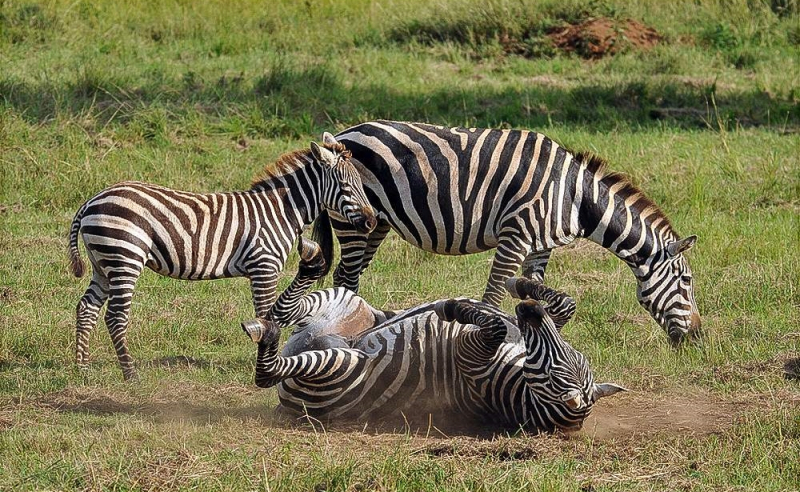
safaribookings.com 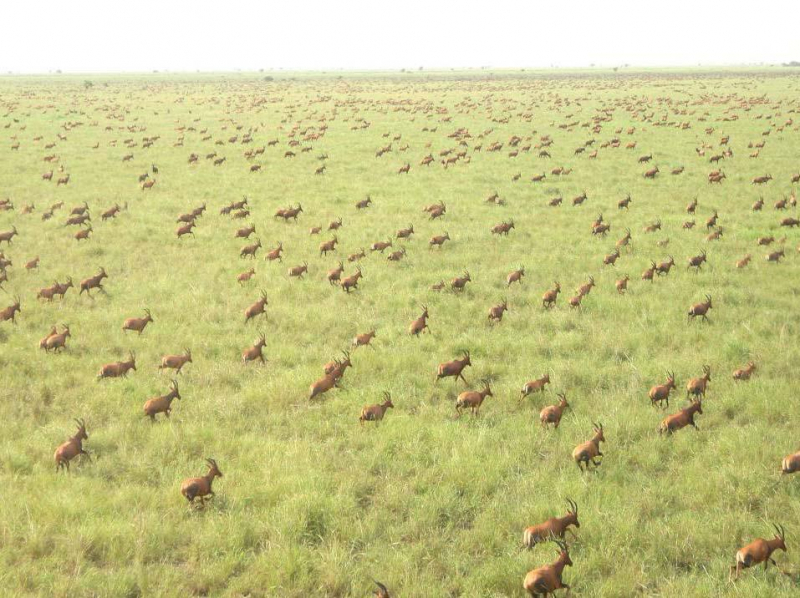
travelosudan.com -
If you are visiting South Sudan and do not know where to stay, read the following section. The hotels are adequate in terms of providing adequate amenities. The majority of them provide self-contained budget, mid-range, and luxury rooms.
Hotel VIP is one of Juba's newest hotels. It is situated on a bustling street and features a restaurant, bar, and wireless internet connection in all rooms. A massage and hair-dressing salon are also available at the hotel. The facilities at Hotel VIP are superior to those found in the majority of the capital's hotels. The majority of the employees, including those who work in the massage parlor, are Ethiopian. Guests will be entertained by Ethiopian dancers and live music in the evening. The cost of a room, including breakfast, is around $120 per night.
The Nile Resort is one of South Sudan's older hotels. As the name implies, the resort is located near the White Nile, providing stunning views of the river. The resort offers complimentary Wi-Fi in all rooms, as well as a bar and restaurant that serves Indian bread, chapatti, and rice. Guests can enjoy local beer and cocktails from around the world while listening to live music over the weekend. A single room will set you back roughly $80, while a double room will set you back around $120. Guests can rent an entire self-contained room for a month at a discounted rate at the Resort. Backpackers on a tight budget can pitch tents at the hotel's promises.Other options: Hotel ECS Guest House, Pyramid Continental Hotel, Pyramid Continental Hotel, etc.
Pyramid Continental Hotel | Juba South Sudan 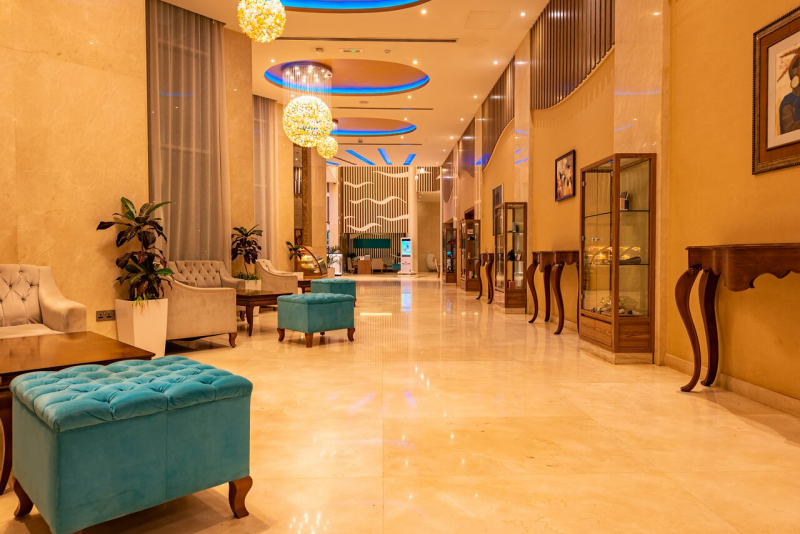
https://www.tripadvisor.com.vn/ -
Are you thinking that whitewater rafting can only be done in Uganda? Well think twice. A whitewater rafting crew has been established in Nimule, allowing brave travelers to row through the tough Nile rapids from Nimule to Juba's capital. The whitewater rafting trip in South Sudan is considerably more adventurous because you will be passing through areas with hippos, crocodiles, antelopes, primates, and elephants. Stops on the islands and in calmer seas are available for sport fishing or birding.
If you are in Juba for the weekend, African Rivers can arrange a whitewater rafting adventure for you. They will pick you up from the capital and transport you to Nimule National Park's Fola Falls. Early in the morning, the activity begins. For unskilled rafters, the first eight kilometers of rapids are grade 4 and can be nerve-wracking. Things get easier after that as the rapids progress to grade 3 and 2.
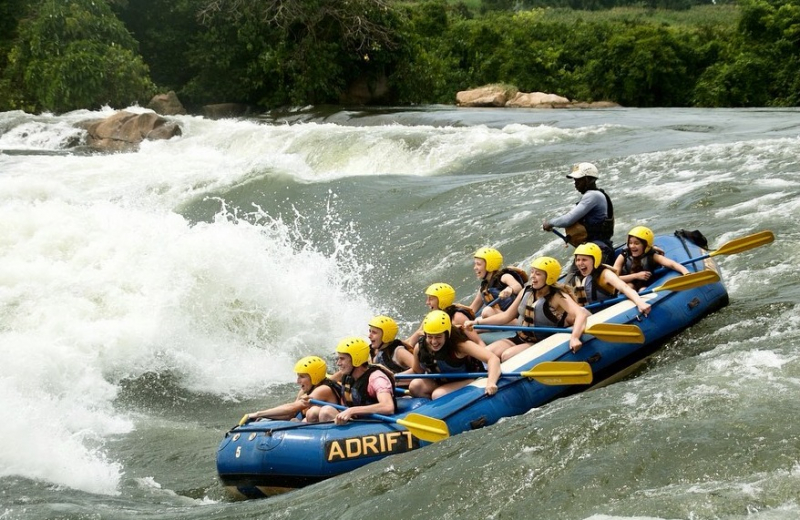
https://blog.ilp.org/ White Nile Rafting in South Sudan













